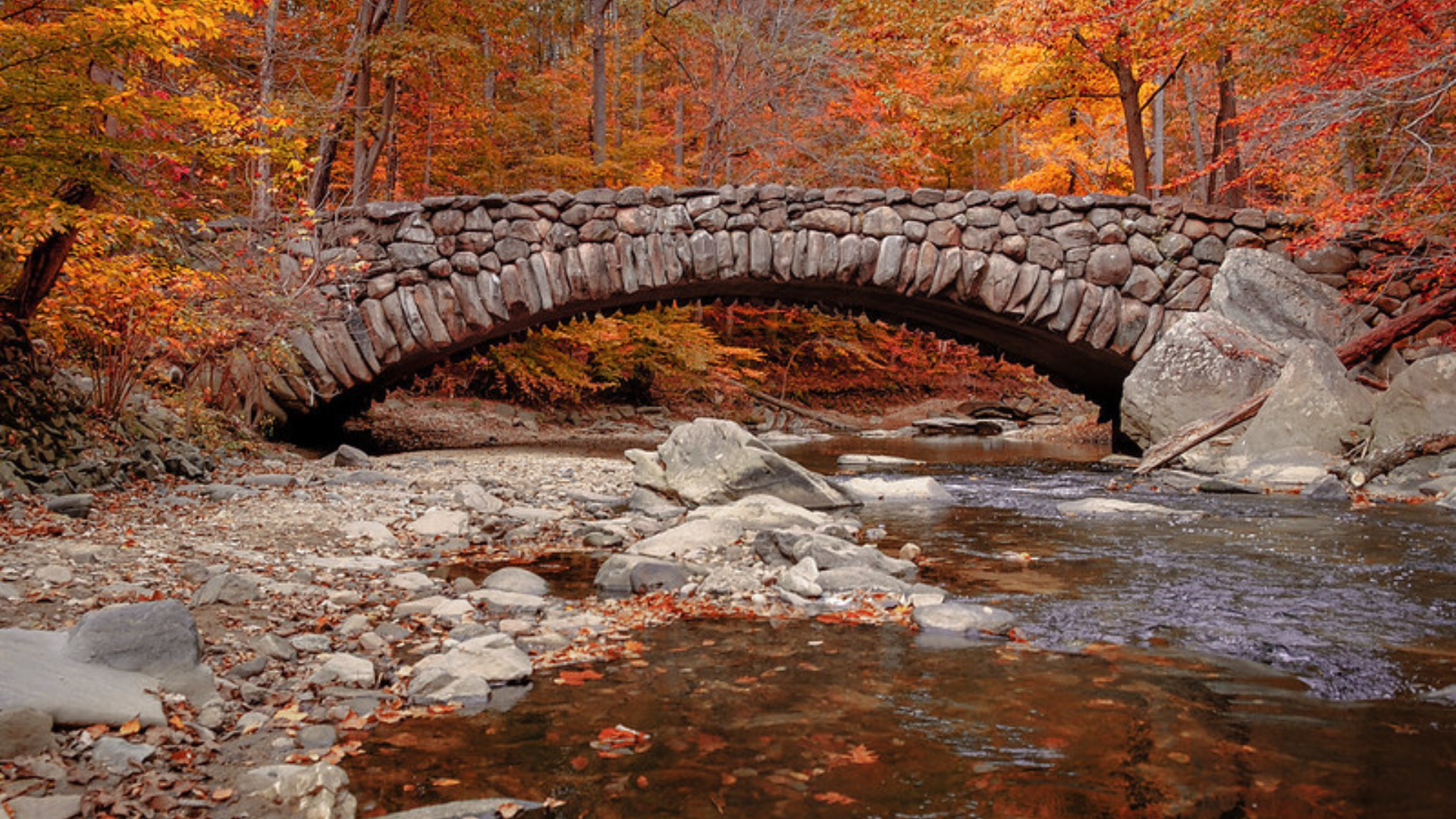
CCAN Calls for Immediate Halt to Plan to Cut 1,200 Trees in Rock Creek Park
- Posted on
- By kchartrand
- In DC, Press Releases
Mature trees are a vital part of regional ecosystem and climate resilience. CCAN joins other groups urging NPS to save the trees.
WASHINGTON, DC — Chesapeake Climate Action Network (CCAN) and other environmental activist groups are speaking out against the proposal to remove over 1,200 trees from Rock Creek Park as part of a new plan to rehabilitate Rock Creek Golf Course. The environmental assessment, from the U.S. National Park Service (NPS) and National Links Trust (NLT), calls for the removal of 1,200-plus trees – amounting to the loss of approximately 8 acres in tree canopy – “to restore the course to its former glory.”
Mike Tidwell, executive director of the Chesapeake Climate Action Network, stated:
“Rock Creek Park is a national treasure and an integral part of Washington, D.C.’s history, as well as a vital resource in our regional fight against climate change. If we want to preserve historic integrity and natural ecosystems, we should do everything we can to protect this park. There must be a way to fix the golf course’s problems without slashing eight acres of century-old trees.”
Trees are one of our most potent resources for combating climate change. Many of the trees in Rock Creek Park, sometimes called the “Lungs of DC,” are over 100 years old, each sequestering dozens of pounds of carbon each year. They also provide countless other benefits to people and wildlife, including helping to filter air and water, controlling stormwater, conserving energy, and providing wildlife habitat.
The proposed NPS plan will eliminate swathes of forest cover, including significant portions of the densest forest patches in the site. Endangered Species like the Long Eared and Indiana Bats – whose populations have already been significantly harmed by the fungal white-nose syndrome – currently use these forests to roost and forage. Additionally, the Hay’s Spring Amphipod, which is only found in Rock Creek Park, shares habitat with the golf course and relies on forest cover for stormwater treatment. These species and others will lose valuable habitat they need to survive.
In 1927, when the proposed golf course design was conceived, the world had limited understanding of climate change and its devastating effects. Today, at a time when the District of Columbia has committed to achieving net-zero carbon emissions by 2045, sacrificing a significant part of this treasured park area in order to spruce up an outdated golf course design is anachronistic and environmentally unsustainable.
CCAN encourages citizens to act now and tell NPS to halt its plans to cut down over 1,200 trees in Rock Creek Park. National Park Service is accepting comments on this proposal until November 4, 2023 at 11:59 PM mountain time.
In addition to CCAN, other environmental groups are speaking out by calling for an extension to the comment period, including: Casey Trees, DC Environmental Network, DC Voters for Animals, Mighty Earth, Anacostia Parks & Community Collaborative, People’s Alliance for Rock Creek (PARC), Ward 8 Woods Conservancy, City Wildlife, Capitol Hill Energy Co-Op, Sierra Club DC Chapter, Sticky Fingers Sweets & Eats, Sticky Fingers Diner, Capital Nature, Green Compass, LLC, Interfaith Power & Light (DC.MD.NoVA), Citizens’ Climate Lobby DC Chapter, Nature Forward (formerly known as Audubon Naturalist Society), Langdon Park Forest Stewards, Anacostia Riverkeeper, and Anacostia Watershed Society.
# # #
The Chesapeake Climate Action Network, the oldest and largest grassroots organization dedicated exclusively to raising awareness about the impacts and solutions associated with climate change in the Chesapeake Bay region. For 20 years, CCAN has been at the center of the fight for clean energy and wise climate policy in Maryland, Virginia, West Virginia, and Washington, D.C.
